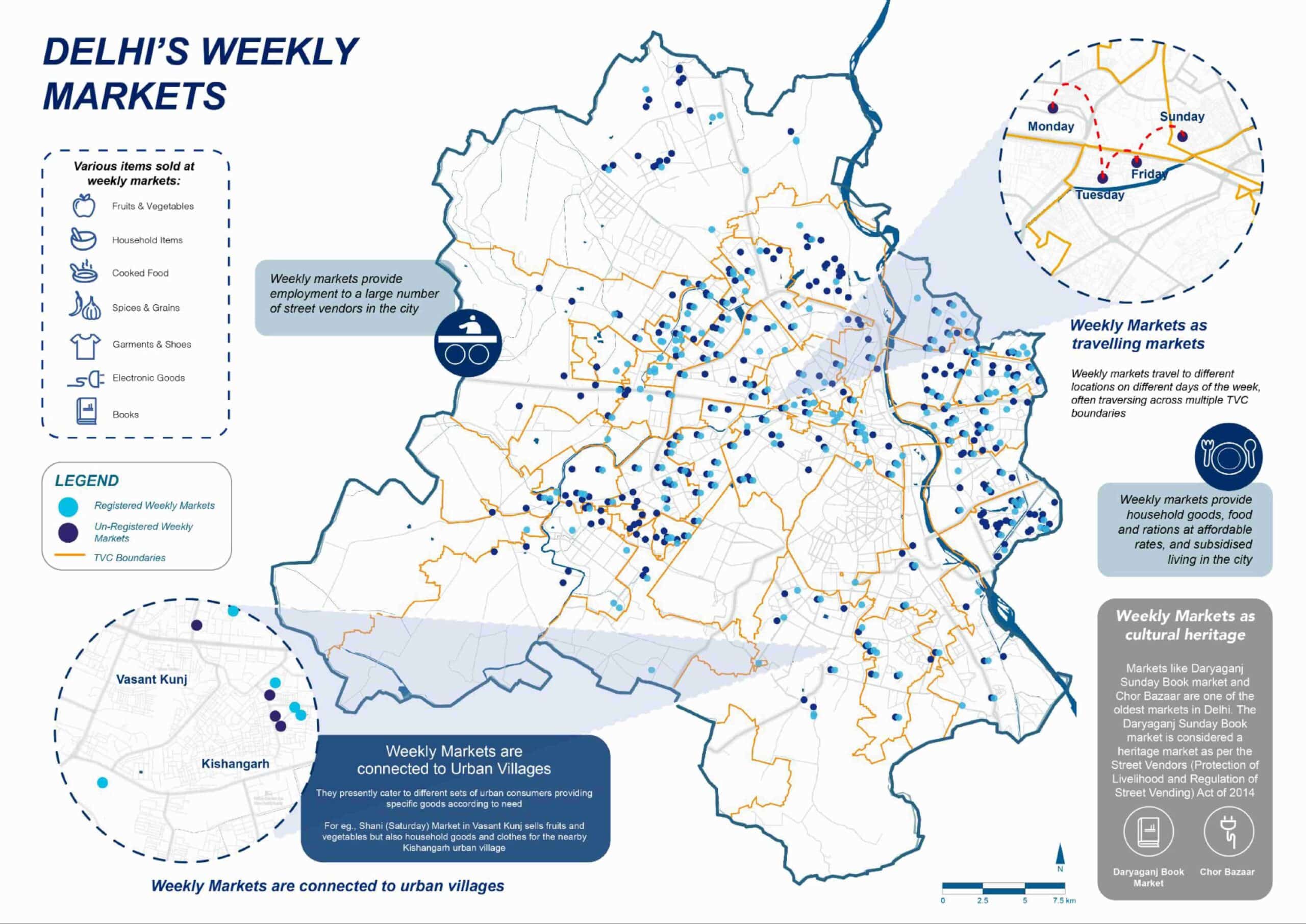Weekly Markets in Delhi: A market that comes to you (Map)
The weekly markets of Delhi have historically served a critical economic and cultural function. Moving markets that are set up in different locations on different days of the week, these markets provide a source of employment for a large number of vendors in the city. Weekly markets are integral to food distribution in Delhi (and many other cities of the Global South) and WIEGO's mapping shows that as many as 500 weekly markets operate for a few hours, on different days of the week in different locations. They sell a host of affordable and fresh goods such as cooked food, grains, vegetables, and household items, which subsidize urban living.

Weekly markets, despite being a ubiquitous part of Delhi’s identity, face multiple challenges. There are around 270 recognised weekly markets operating all over Delhi and vendor groups estimate that there are an equal number of such markets that are yet to be recognised. More than 112,500 vendors in Delhi are associated with weekly markets. These markets operate along footpaths or open grounds of residential neighbourhoods and are an important source for everyday essentials for middle and low income communities. With limited public space available, weekly markets have to navigate contesting claims for use of public spaces such as for pedestrians and vehicular traffic, and often it is market vendors who bear much of the blame and retribution from authorities for the challenges that result.

For example, vendors in weekly markets face harassment from many sources, including middlemen and authorities, over the use of public space and other issues such as cleanliness, crowding, and sanitation. The COVID-19 pandemic has further aggravated the vulnerable economic condition of weekly market vendors. For most of the last two years, weekly markets have been closed or allowed to reopen with harsh restrictions, with negative economic impacts not only for vendors but also for the communities that depend on the markets for their basic needs.

FC Delhi has worked with Social Design Collaborative and Janpahal to document and map the locations of all weekly markets (both registered and unregistered) in Delhi. This mapping showcases the complexity in the use of public space in Delhi, and underscores the importance for planners in Delhi to take into account the realities of the use of space in the city. For example, planning for vending in the city requires attention to temporality (that some uses of space are not permanent but rather are activated in different moments) and multiple uses of space.

View list of all: Fact Sheets/Infographics

